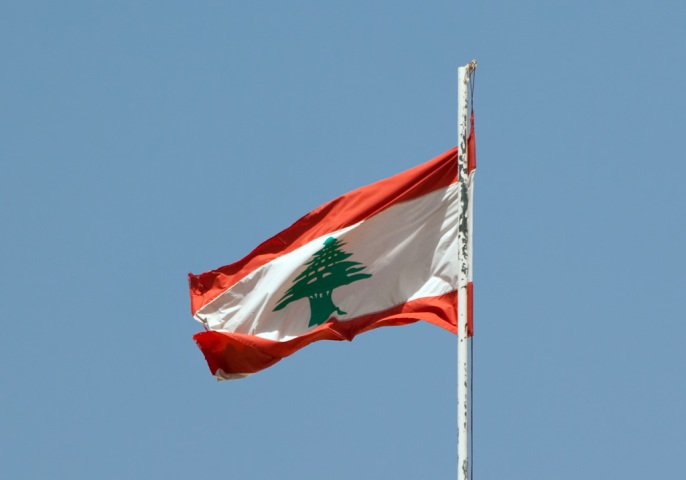UPDATE 9-Protests sweep Lebanon as fury at ruling elite grows

- Country:
- Lebanon
Security forces fired tear gas and chased down protesters in Beirut on Friday as tens of thousands of people across Lebanon marched to demand the removal of a political elite they accuse of looting the economy to the point of collapse. Riot police in vehicles and on foot rounded up a number of protesters, according to Reuters witnesses. They fired rubber bullets and tear gas canisters, dispersing demonstrators in Beirut's commercial district.
Addressing protesters, Prime Minister Saad al-Hariri blamed his partners in government for obstructing reforms that could have resolved the economic crisis and gave them a 72-hour deadline to stop blocking him, otherwise hinting he may resign. He said Lebanon was going through an "unprecedented, difficult time".
Lebanon's biggest protests in a decade recall the 2011 Arab revolts that toppled four presidents. Lebanese from all sects and walks of life have come out on to the streets, waving banners and chanting slogans urging Hariri's government to go. "There are those who have placed obstacles in front of me since the government was formed, and in the face of all the efforts that I have proposed for reform," Hariri said, without naming names.
"Whatever the solution, we no longer have time and I am personally giving myself only a little time. Either our partners in government and in the nation give a frank response to the solution, or I will have another say. "The deadline left is very short. It's 72 hours," he said.
"STEP DOWN"
Protesters poured through villages and towns across Lebanon as well as the capital Beirut for a second day. No political leader, Muslim or Christian, was spared their wrath.
Their chants called for leaders including President Michel Aoun, Hariri and parliament speaker Nabih Berri to step down. The mood was a mixture of rage, defiance and hope.
As night fell, crowds waving Lebanese flags marched and drove through the streets with patriotic music blaring from loudspeakers while shouting: "Our demands are one, our objective is one: the people want the downfall of the regime." Security forces fired tear gas, angering many demonstrators.
"You should be protecting us, shame on you," one protester shouted as he covered his face against the choking fumes. Some protesters, including men in black hoods, blocked roads, set tyres on fire and used iron bars to smash store fronts in Beirut's posh downtown district.
With fires blazing, some streets in the capital looked like a battlefield, strewn with rubber bullets, smashed glass, torn billboards and other debris. Firefighters struggled late into the night to douse the flames. As demonstrators crowded around Aoun's palace in Baabda, the United Nations urged all sides to refrain from actions that could lead to increased tensions and violence.
Saudi Arabia, Kuwait and the United Arab Emirates warned their citizens to against travelling to Lebanon. Bahrain told its nationals to leave at once.
TOTALLY CORRUPT
Foreign Minister Gebran Bassil, Aoun's son-in-law, also blamed other parties for blocking reforms, saying the government must work to stop corruption and avoid imposing new taxes. The latest unrest was prompted by anger over new tax proposals, including a fee on WhatsApp voice calls, and the rising cost of living.
In an unprecedented move, Shi'ite protesters also attacked the offices of their deputies from Lebanon's influential Hezbollah group and the Amal movement in southern Lebanon. "We came to the streets because we can no longer bear this situation. This regime is totally corrupt," said Fadi Issa, 51, who marched with his son. "They are all thieves, they come into the government to fill their pockets, not to serve the country."
The demonstrations follow warnings by economists and investors that indebted Lebanon's economy and graft-riddled financial system are closer to the brink than at any time since the war-torn 1980s. Foreign allies have pressured Hariri to enact reforms long promised but never delivered because of vested interests.
In a country fractured along sectarian lines, the unusually wide geographic reach of the protests highlights the deepening anger of all Lebanese. The government, which includes nearly all Lebanon's main parties, has repeatedly failed to implement the reforms needed to resolve the crisis. Seeking ways to boost revenues, a government minister on Thursday announced a new fee for WhatsApp calls, fuelling outrage. But as the protests spread, Telecoms Minister Mohamed Choucair revoked the proposed levy.
Shattered by war between 1975 and 1990, Lebanon has proportionally one of the world's highest debt burdens. Economic growth has been hit by regional conflict, while unemployment among the under-35s runs at 37%. The steps needed to fix the national finances have long proven elusive. Sectarian politicians, many of them civil war militia leaders, have used state resources for their own benefit and are reluctant to give that up.
Also Read: UAE promises investments, financial aid to Lebanon -Hariri
(This story has not been edited by Devdiscourse staff and is auto-generated from a syndicated feed.)
ALSO READ
UAE President exchanges Eid Al-Fitr greetings with Emir of Kuwait and Turkish counterpart
CPI(M) has links to 80 'undisclosed' bank accounts, 100 offices in Thrissur: ED informs EC
Kuwait names Ahmad Abdullah al-Ahmad al-Sabah as prime minister
Mumbai man arrested by Kolkata Police for conducting recce near Abhishek Bachchan's residence and offices in Kolkata
First ever Hindi radio broadcast starts in Kuwait










